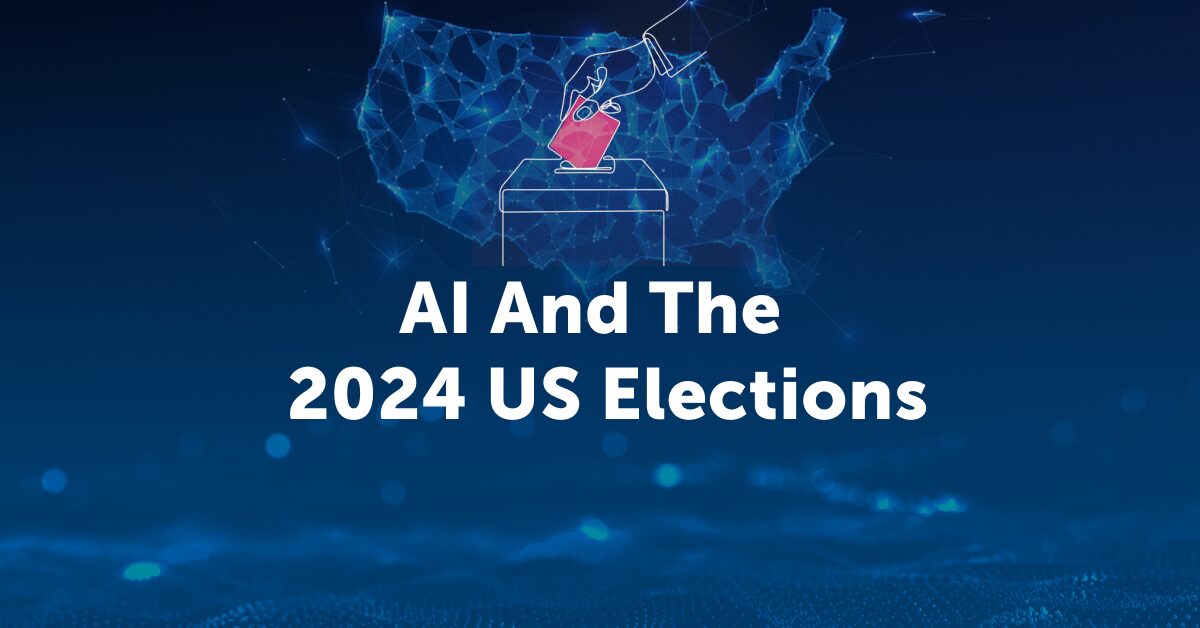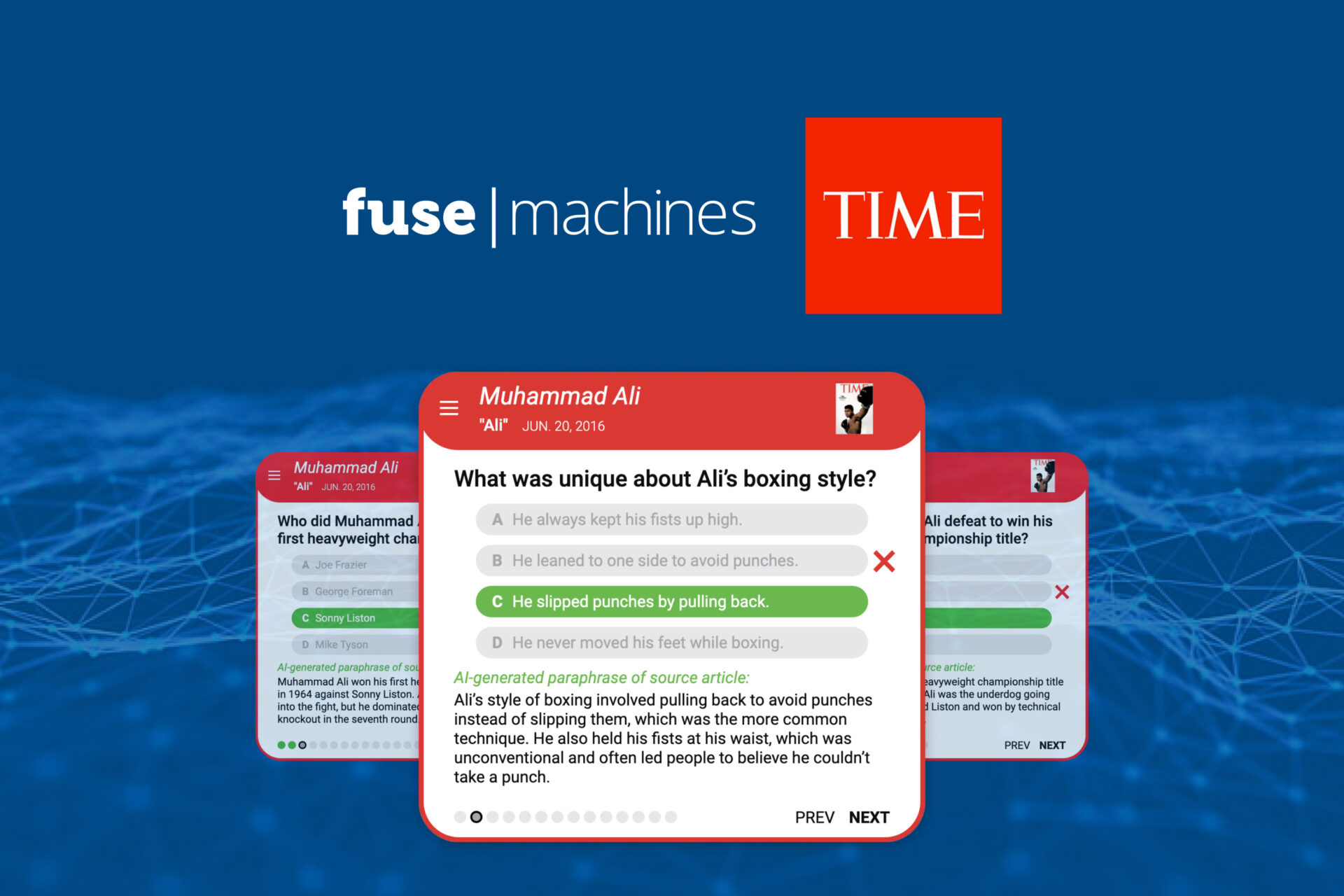Insights and Takeaways from AI Leadership Event

Fusemachines participated in an AI Leadership event in New York, where we gained valuable insights on generative AI. The event brought together top achievers in technology and AI, alongside industry experts excited about bringing AI into their business practices. The event was a great opportunity for AI professionals to share insights, answer audience questions and concerns, and go into depth about the implementation and impact of AI.
Fusemachines CEO and founder Sameer Maskey answered questions on a panel about generative AI. He discussed specific applications of generative AI, potential concerns, and what the future of generative AI holds.
In this blog we will go over some of the key questions and takeaways from that panel to provide insight on the benefits of generative AI.
What are some use cases of generative AI that can positively impact companies?
Internal automation and AI complementing human efforts, using AI as a tool to build and refine other AI tools, and prompt engineering are examples of the transformative effect that generative AI can have on companies.
Will generative AI replace jobs formerly done by humans, and if so, which jobs?
Generative AI will work as a “co-pilot” to augment and aid the work done by humans for optimized results. It will enhance work done by people, resulting in faster, more efficient, and more accurate results. Companies can prepare for future innovations by providing education and awareness of the benefits of AI, and building a positive culture around AI in office.
What can we realistically expect the short-term and long-term impacts of generative AI to be?
Generative AI has the potential to redefine productivity and efficiency. However, it is only as good as the data it has access to. Therefore, by improving data quality and accessibility, we can best position AI for innovation.
How can executives make AI-related decisions with the AIDR framework?
By using the AIDR Framework, companies can make informed AI decisions.
Algorithm Viability
Are there existing algorithms that fit the domain of your problem well? If not, you may need to consider building an algorithm to address it.
Impact
Does the end goal have a tangible business impact on revenue, costs, customer experience, overhead, or product usability?
Data
Assessing your current state of data is essential. Do you have the right type and amount of data so that the model can be trained to be accurate?
Recurrence
How often does your current challenge arise and how often will the end product or solution be utilized by your users?
What are the types of roles that could benefit from AI “co-pilots,” and what level of productivity enhancements can be reasonably expected?
AI can improve productivity across all industries, including healthcare, finance, and entertainment. Within these industries, AI can help with employee engagement and retention, fraud detection, annotating content, eliminating mundane tasks, and more. Here is how AI can be used in certain industries:
Healthcare
- Improve diagnostics and disease detection, aiding in early intervention and personalized treatment.
- AI-enabled robots and chatbots can provide assistance and support in healthcare settings.
- Analyze vast amounts of medical data to identify trends and patterns for research and drug development.
Media:
- AI algorithms can personalize content recommendations for users, enhancing user experience.
- AI-powered chatbots and virtual assistants can handle customer queries and provide personalized assistance.
- AI can automate content creation processes, such as video editing and captioning.
Finance:
- AI algorithms can detect fraud and enhance security measures in financial transactions.
- AI-powered chatbots can assist customers with account inquiries, transactions, and financial planning.
- AI-driven data analysis can provide valuable insights for investment decisions and risk assessment.
Entertainment:
- AI can personalize content recommendations for users based on their preferences and viewing habits.
- AI-powered virtual reality (VR) and augmented reality (AR) technologies can enhance gaming experiences.
- AI algorithms can automate content creation, such as generating music, scripts, and visual effects.
AI can augment and enhance the work done by humans for optimized results across industries including healthcare, finance, and media and entertainment. By gaining insights from data, improving customer experience and automating tedious processes, AI will drastically enhance productivity.
How can Data Science and Technology professionals prime their executives or clients for the types of obstacles these initiatives cause?
To prepare people for AI, there are a few steps that professionals must take:
- Articulate the value of the AI system. Firstly, it is important to communicate the benefits of integrating generative AI, such as improved efficiency, cost savings, and enhanced decision-making.
- Address technical challenges. Recognize implementation obstacles like data infrastructure and scalability, and provide a roadmap for successful integration.
- Upskill your workforce. Emphasize the importance of upskilling data science and tech professionals to effectively utilize generative AI.
- Prioritize DEI. Highlight the need to address biases and ethical concerns in AI, and advocate for diversity and inclusivity in data collection and decision-making.
- Manage cultural change. Foster a culture of open communication, collaboration, and growth mindset to facilitate AI adoption.
- Share success stories. Lastly, illustrate positive outcomes from organizations that integrated generative AI, showcasing tangible benefits and lessons learned.
By implementing these suggestions, companies will be better equipped to handle the incoming changes from AI.
Thank you to all in attendance!
We would like to extend our gratitude to everyone, audience members and panelists who came and participated in the event on Wednesday. Everyone in attendance provided meaningful insights that led to the success of the event and contributed to the learning culture at Fusemachines.
Please feel free to reach out to the Fusemachines team to explore your AI and generative AI options.


